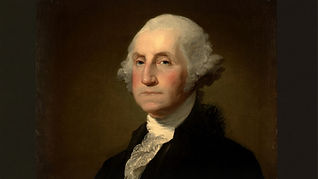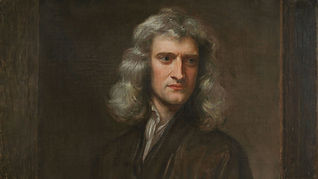Napoleon Bonaparte: The Emperor Who Rose From Nothing
The story of Napoleon Bonaparte is one that continues to captivate minds across generations, proving that greatness can emerge from the most unlikely places. Born on August 15, 1769, on the small Mediterranean island of Corsica, nothing about young Napoleon's beginnings suggested he would become one of history's most influential figures. Yet through sheer determination, brilliant strategic thinking and an unquenchable ambition, this island boy would rise to become Emperor of France and forever change the face of Europe.
Imagine being a young boy with a foreign accent, attending school in a country where other students mock your way of speaking. This was Napoleon's reality when he arrived at a military academy in mainland France at age nine. Born just a year after France acquired Corsica, Napoleon wasn't even a native French speaker – he spoke Italian and the Corsican dialect. The other students teased him mercilessly for his accent and his family's relative poverty. But rather than break him, this adversity forged his character. Young Napoleon threw himself into his studies, particularly excelling in mathematics and history. He would often spend hours alone in the library, devouring books about great military leaders of the past, perhaps already dreaming of his own future glory.
By age 16, Napoleon had graduated from the prestigious École Militaire in Paris, becoming an artillery officer in the French army. His timing, though he couldn't have known it then, was perfect. The French Revolution erupted in 1789, creating unprecedented opportunities for talented individuals regardless of their noble birth. Napoleon seized these opportunities with both hands. While others saw chaos, he saw chance. While others hesitated, he acted.
His first major triumph came in 1793 at the Siege of Toulon. Despite being just 24 years old and a junior artillery officer, Napoleon devised a brilliant strategy to capture this crucial port from British forces. His plan worked perfectly, earning him rapid promotion to Brigadier General. This marked the beginning of a meteoric rise that would seem almost unbelievable if it weren't historical fact.
In 1795, when royalist rebels threatened the new revolutionary government in Paris, it was Napoleon who saved the day. Using a combination of quick thinking and decisive action, he famously dispersed the mob with what he called "a whiff of grapeshot" – strategically placed artillery that broke the uprising without excessive bloodshed. This action caught the attention of the Directory (France's governing body) and more importantly, introduced him to Joséphine de Beauharnais, who would become his first wife and empress.
The year 1796 marked Napoleon's first major command – leading the French army in Italy against the Austrians. Here, he revealed his true genius. Despite having a smaller, poorly supplied army, Napoleon moved with lightning speed, defeating larger Austrian forces in a series of brilliant manoeuvres. He didn't just win battles; he revolutionized warfare. While other generals were still fighting according to 18th-century rules, Napoleon introduced new tactics: rapid movement, concentration of forces at crucial points and the ability to sustain his army by living off the conquered territories.
His success continued to build upon itself. In 1798, he led an ambitious expedition to Egypt, hoping to disrupt British trade routes to India. Though the campaign ultimately failed, Napoleon's propagandists turned it into a cultural triumph, highlighting the scientific discoveries made by the scholars he had brought along. Even in failure, Napoleon found ways to enhance his reputation.
The most dramatic chapter of Napoleon's rise came in 1799. Returning from Egypt, he found France's government weak and unpopular. Seizing the moment, he participated in a coup d'état that established a new government called the Consulate, with himself as First Consul. Within five years, he had transformed this position into Emperor of France, crowned in a magnificent ceremony at Notre Dame Cathedral on December 2, 1804. In a gesture that perfectly symbolized his meteoric rise, Napoleon took the crown from Pope Pius VII's hands and placed it on his own head.
As Emperor, Napoleon proved himself not just a military genius but also a brilliant administrator. He created the Napoleonic Code – a clear, comprehensive legal system that influenced law across Europe and beyond. He established the Bank of France, reformed education and modernized the government bureaucracy. Many of these innovations survive to this day.
His military successes continued to mount. Between 1805 and 1812, Napoleon won a series of spectacular victories: Austerlitz (1805), where he destroyed a combined Austrian-Russian army; Jena-Auerstedt (1806), where he crushed Prussia; and Wagram (1809), where he again defeated Austria. At his height, Napoleon controlled directly or indirectly most of continental Europe, from Spain to Poland.
Yet success contained the seeds of its own destruction. In 1812, Napoleon made his fateful decision to invade Russia with the largest army Europe had ever seen – around 685,000 men. The Russians refused to give battle, retreating and burning everything in their path. When Napoleon finally reached Moscow, he found it too burned and empty. The harsh Russian winter, combined with guerrilla attacks and lack of supplies, devastated his army. Of the nearly 700,000 men who began the campaign, only about 100,000 returned.
This disaster encouraged Napoleon's enemies. In 1813, a coalition of European powers defeated him at the Battle of Leipzig. By 1814, they had invaded France itself, forcing Napoleon to abdicate and exile himself to the small Mediterranean island of Elba. But even this wasn't the end. In 1815, Napoleon escaped from Elba and returned to France, where soldiers sent to arrest him instead joined his cause. He regained power without firing a shot, beginning the period known as the Hundred Days.
His final defeat came at Waterloo on June 18, 1815, where a combined British-Prussian army led by the Duke of Wellington finally ended Napoleon's dreams of empire. This time, he was exiled to the remote South Atlantic island of Saint Helena, where he died on May 5, 1821.
"Impossible is a word to be found only in the dictionary of fools." - Napoleon Bonaparte, French Leader
What makes Napoleon's story truly remarkable is not just his unprecedented rise from obscurity to emperor, but the lasting impact he had on history. His legal reforms, administrative systems and military innovations influenced generations. Even in defeat, he changed Europe forever, inspiring both nationalism and dreams of European unity that continue to shape the continent today.
Napoleon's life teaches us several timeless lessons:
• Education and self-improvement are powerful tools for advancement
• Opportunity often comes disguised as crisis
• Innovation and adaptability are more valuable than tradition
• Even the greatest success can be undone by overreach
• Leadership requires both vision and practical ability
Perhaps Napoleon's greatest legacy is as proof that one person of talent and determination can change the world. As he himself said, "Impossible is a word to be found only in the dictionary of fools". His rise from a teased Corsican schoolboy to Emperor of France remains one of history's most remarkable stories of personal achievement, showing that with enough talent, determination and willingness to seize opportunity, anything is possible.
The story of Napoleon Bonaparte isn't just about military conquest or political power – it's about the potential that lies within each person to rise above their circumstances and make their mark on history. While we might not all become emperors, his journey from humble beginnings to the heights of power continues to inspire people to dream big and work tirelessly toward their goals.
Did you find this story inspiring? We'd love to hear your thoughts! Please like and share this article with friends and family who might find Napoleon's journey motivational. Share in the comments below what aspect of Napoleon's story resonates most with you – was it his rise from humble beginnings, his innovative thinking, or perhaps his determination to overcome obstacles? Your engagement helps us create more inspiring historical content for our community. Don't forget to follow us for more fascinating stories of historical figures who changed the world!












